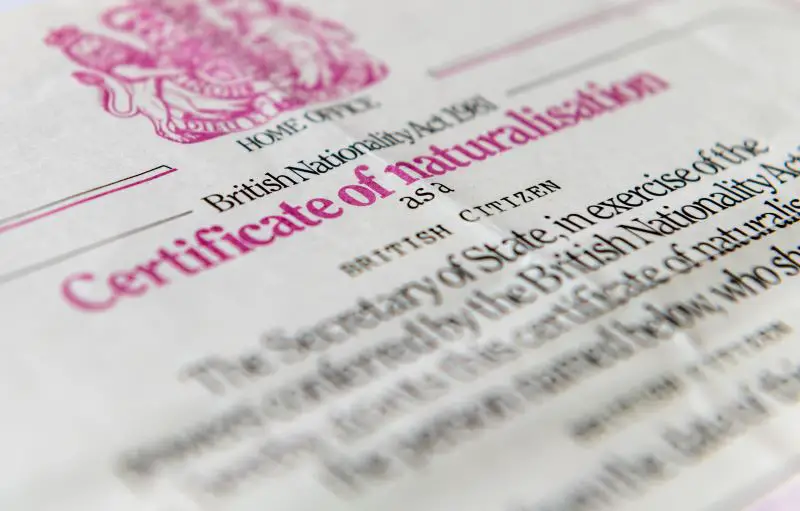Click here to get this post in PDF
As globalization continues to make our world smaller, the need to authenticate legal documents for international use is growing. Among these documents, the Certificate of Naturalization stands out when citizens are required to prove their status abroad. Securing an apostille for this certificate is a crucial step in ensuring its acceptance across borders.
What is a naturalization certificate used for?
The Certificate of Naturalization serves as essential proof that an individual has been granted U.S. citizenship after fulfilling all necessary requirements set by U.S. Citizenship and Immigration Services (USCIS). This document includes vital information such as the registrant’s full name, place of residence, country of former nationality, and often a photograph. It also bears the Department of Homeland Security seal and the signature of the USCIS director.
This certificate acts as undeniable evidence of a person’s legal transition from an immigrant to a U.S. citizen. Because citizenship status is fundamental to many aspects of international interactions, ensuring this document’s validity worldwide is imperative.
How to use a naturalization certificate abroad?
When planning to live, work, or engage in official activities in foreign countries, you may be asked to provide your Certificate of Naturalization. To guarantee its recognition abroad, the document needs to undergo a process called ‘apostille.’ An apostille verifies the authenticity of the issuing authority and the document itself, making it acceptable in other nations.
Countries that are signatories to The Hague Apostille Convention accept apostilled documents without further legalization. However, if your destination country is not a party to this treaty, you’ll need to have your document legalized through the respective embassy or consulate. This added step ensures the receiving nation acknowledges the document’s legitimacy.
What are the steps to obtain an apostille?
The process of document apostillation can be challenging. Your journey starts by sending your Certificate of Naturalization to the U.S. Department of State in Washington, D.C., where the apostille will be issued. This involves filling out application forms and possibly paying service fees. If your destination requires legalization beyond the apostille, the next step involves forwarding both the Certificate of Naturalization and the apostille to the appropriate embassy or consulate. Each embassy or consulate might have unique requirements, adding another layer of complexity.
The rules surrounding document apostilles and legalization can seem perplexing, especially with time restraints or unfamiliarity with bureaucratic procedures. Many people find professional assistance invaluable in navigating these hurdles efficiently. Services like EZApostille.com offer expert help in ensuring your documents meet every requirement. They handle communications with relevant departments and diplomatic missions, streamlining the entire apostille process for you. These specialists typically return your authenticated document swiftly, letting you focus on your upcoming plans without unnecessary stress.
Authenticating your Certificate of Naturalization for international use doesn’t have to be intimidating. Understanding the steps and leveraging professional services can save you valuable time and energy. Whether preparing for travel, work, or residency abroad, securing an apostille for your Certificate of Naturalization ensures you’re fully prepared for any legal verifications that lie ahead.
You may also like: Paying Taxes for Undocumented Immigrants – The ITIN
Image source: Depositphotos.com

